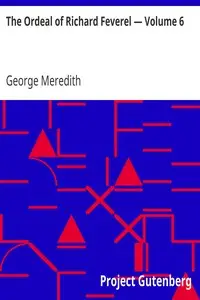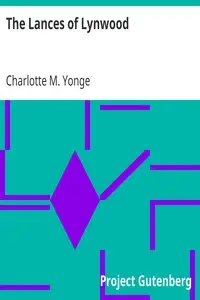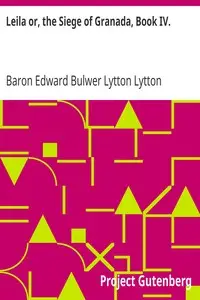"Vittoria — Volume 2" by George Meredith is a historical saga painted across the vibrant canvas of 19th-century Italy, a land ablaze with revolutionary fervor. We meet Vittoria, a spirited young woman deeply woven into the rebellion against Austrian oppression. The saga begins with Lieutenant Wilfrid Pierson, haunted by a letter from Vittoria that speaks of love shadowed by opposing loyalties. As Verona simmers with discontent, the story sets the atmosphere as tensions rise, highlighting the strained interactions between Austrian officers and fiery Italian locals. Lieutenant Pierson finds himself in a tumultuous world of divided loyalties, love, and social clashes, all set against the backdrop of an escalating revolution, foreshadows the pivotal moments and interconnected destinies that await.

Vittoria — Volume 2
By George Meredith
In a landscape of revolution and forbidden love, a woman and a lieutenant find themselves torn between their hearts and their allegiances as Italy fights for its freedom.
Summary
About the AuthorGeorge Meredith was an English novelist and poet of the Victorian era. At first, his focus was poetry, influenced by John Keats among others, but Meredith gradually established a reputation as a novelist. The Ordeal of Richard Feverel (1859) briefly scandalised Victorian literary circles. Of his later novels, the most enduring is The Egoist (1879), though in his lifetime his greatest success was Diana of the Crossways (1885). His novels were innovative in their attention to characters' psychology, and also portrayed social change. His style, in both poetry and prose, was noted for its syntactic complexity; Oscar Wilde likened it to "chaos illumined by brilliant flashes of lightning". Meredith was an encourager of other novelists, as well as an influence on them; among those to benefit were Robert Louis Stevenson and George Gissing. Meredith was nominated for the Nobel Prize in Literature seven times.
George Meredith was an English novelist and poet of the Victorian era. At first, his focus was poetry, influenced by John Keats among others, but Meredith gradually established a reputation as a novelist. The Ordeal of Richard Feverel (1859) briefly scandalised Victorian literary circles. Of his later novels, the most enduring is The Egoist (1879), though in his lifetime his greatest success was Diana of the Crossways (1885). His novels were innovative in their attention to characters' psychology, and also portrayed social change. His style, in both poetry and prose, was noted for its syntactic complexity; Oscar Wilde likened it to "chaos illumined by brilliant flashes of lightning". Meredith was an encourager of other novelists, as well as an influence on them; among those to benefit were Robert Louis Stevenson and George Gissing. Meredith was nominated for the Nobel Prize in Literature seven times.



















